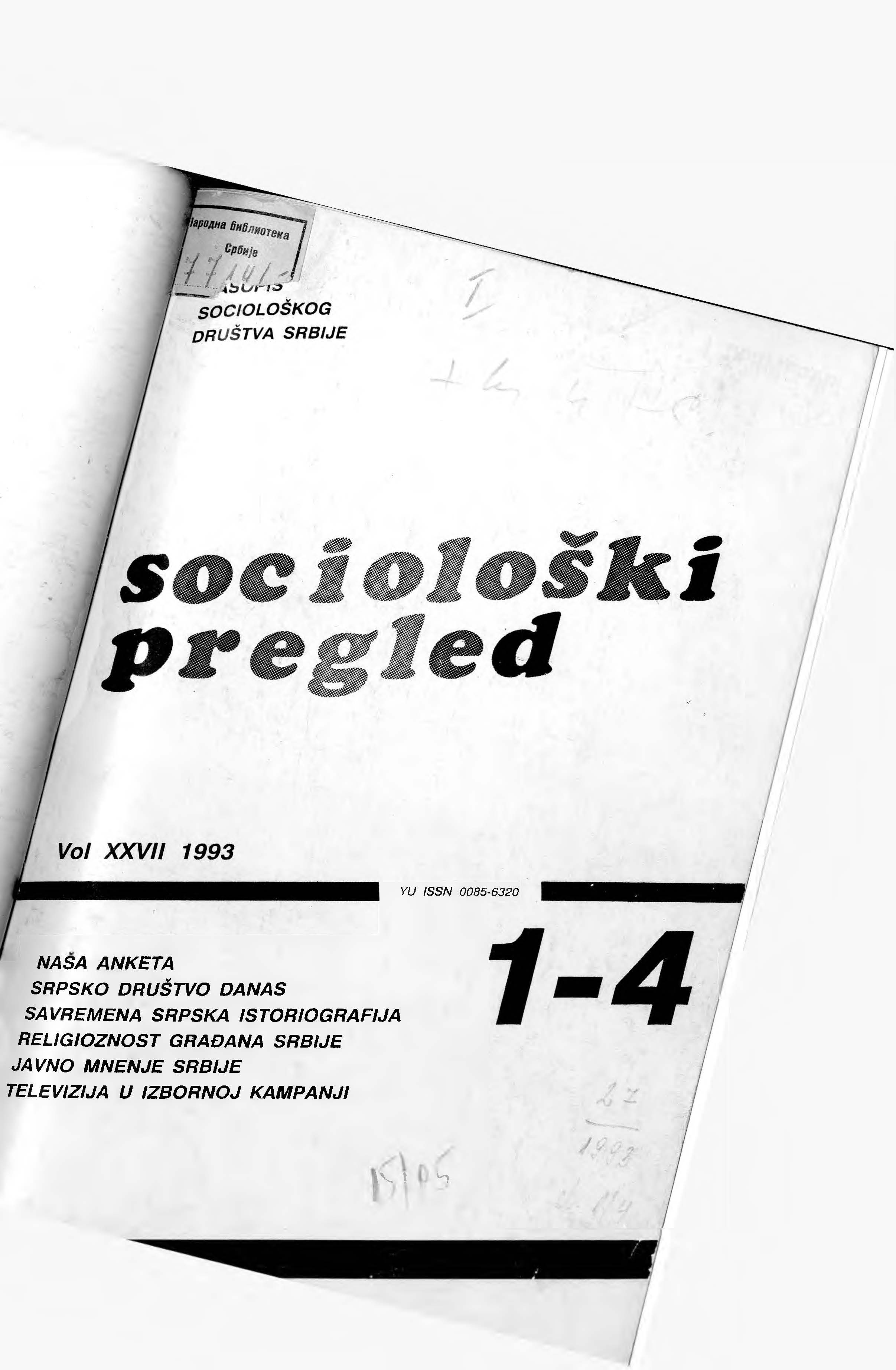The Changes in the Religiousness of the Citizens of Serbia
The Changes in the Religiousness of the Citizens of Serbia
Author(s): Dragomir PantićSubject(s): Social Sciences, Sociology, Theology and Religion, Sociology of Religion
Published by: Српско социолошко друштво
Keywords: Srbija;religija;religioznost građana;
Summary/Abstract: An answer to the question about spread of the classical religiousness (R) depends on definition of this notion and indicators chosen. Starting from self-declarations of respondents concerning their own R, which is a very simple, reliable, the most used and very comparable indicators of R, several empirical investigations had showed that Serbia, especially in its rural stratum and its central part (traditionally orthodox) had been a very secularized social setting until a decade ago. In the late eighties, as a result of prolonged and deep-rooted inner crises and breakdown of socialism in the whole Eastern Europe, a process of revival of classical R has been started, primarily among citizens who traditionally belong to the other, non-orthodox confessions, among minorities, youth and in the rural areas. Process of desecularization in Serbia and approaching of the R to the average extent of the R in countries of EU is rather a repeated leap-like increase than linear change in the function of time. In Nov. 1993. the R has been a majority phenomenon (42% vs. 26% non-religiously oriented and 32% in the category of ’mixed type’), even in urban segment of society, among men, middle-aged ones and in the intellectual youth. The modal type of the R consists of farmers (76%), the least educated people (66%), ethnic Albanians (70%), Hungarians (68%), Moslems (56%), older than sixty (55%), women (48%) and supporters of political parties with programs nationally accentuated (71%-48%), while the least religious categories of citizens are declared themselves as Yugoslavs (20%), professionals (29%), inhabitants of Belgrade region (36%), and supporters of national political parties (about 1/3). The revival of R is a part of the more general process in Eastern Europe, but in Serbia somewhat paradoxically hybrid (for example, existence of process of retraditionalism and democratization at the same time). The R in present day Serbia have different social and psychological functions, especially nationally-protective, defensive and compensatory ones, and certain moral, cultural and ideological functions, too.
Journal: Социолошки преглед
- Issue Year: 27/1993
- Issue No: 1-4
- Page Range: 177-204
- Page Count: 28
- Language: Serbian

